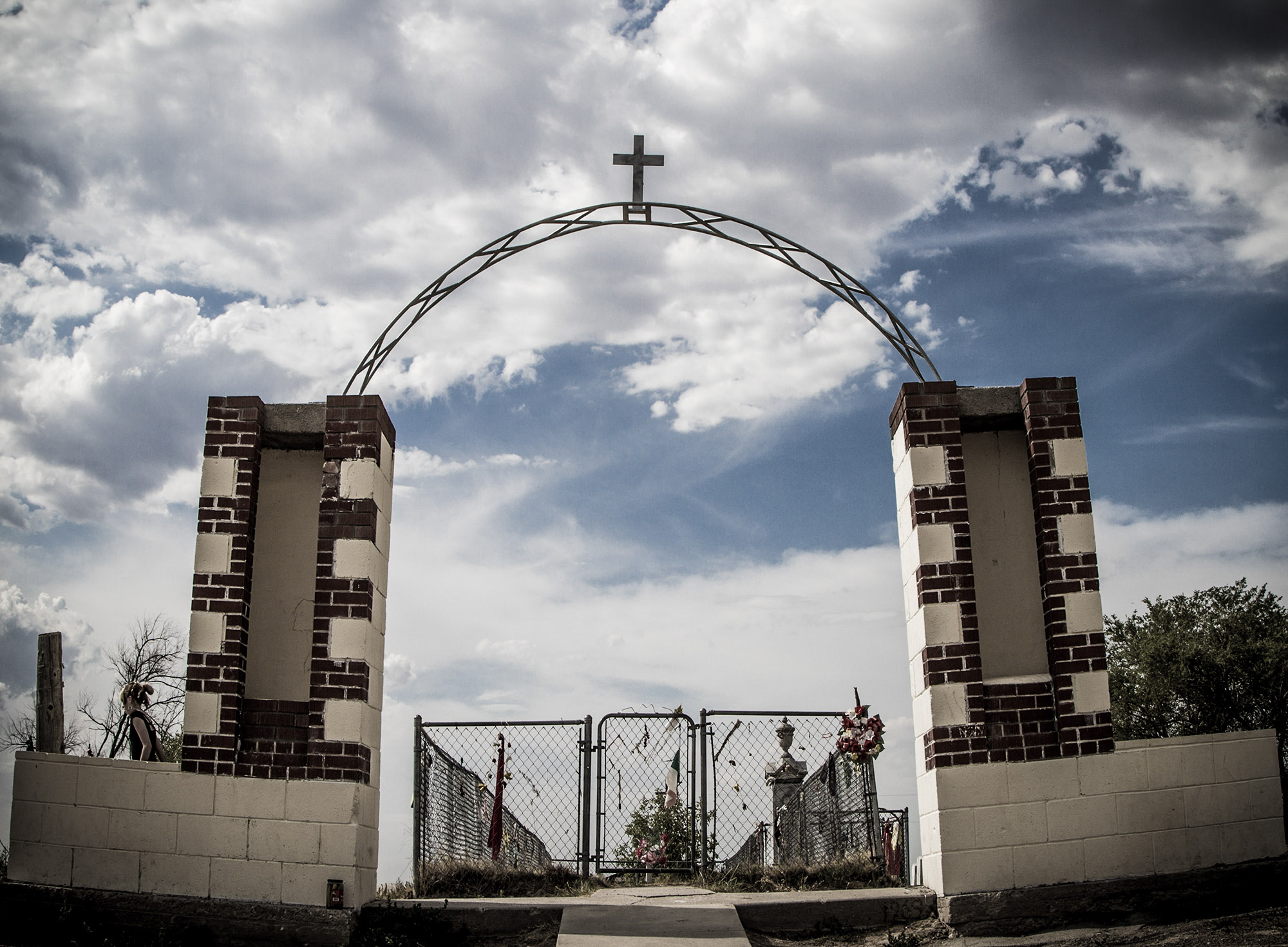Indianz.Com > News > Seth Tupper: Medals still on the books for slaughter of Lakota people

An alternative proposal for the Wounded Knee medal problem
Monday, January 22, 2024
Some of the soldiers who participated in the killing of hundreds of Native American men, women and children 133 years ago today at Wounded Knee are still officially honored as heroes.
Poorly written citations have confused the issue of how many soldiers received the Medal of Honor specifically for their participation in the massacre, but it’s believed to be 19, according to the latest scholarship.
The decision to glorify those soldiers for the slaughter at Wounded Knee can be understood, though certainly not justified, by considering the politics and prevailing racial attitudes of the late 19th century.
All these years later, there is plentiful evidence and widespread recognition that the “battle” on South Dakota’s Pine Ridge Reservation was in fact a massacre, and that awarding medals for a massacre is fundamentally wrong.
Yet every attempt to pass federal legislation rescinding the medals has failed. Dwight Mears says he knows why, and he has an idea to break the logjam.
Previous efforts
Mears, of Oregon, brings qualifications to the discussion: He’s a retired Army officer with a doctorate in history. During the 1990s, he developed an intense and abiding interest in the thicket of laws, policies and processes governing the issuance of military medals. The trigger was a realization that his late grandfather, a bomber pilot, had not received medals after being shot down and held as a prisoner during World War II.
It took many years, reams of research and correspondence, and an uncommon level of persistence, but Mears finally obtained honors not only for his grandfather but for other veterans in similar situations. Most recently, he brought his hard-won expertise to bear on the Wounded Knee problem, in an article that’s accepted and pending publication by the American Indian Law Review.
Modern efforts to rescind the medals have taken the form of “Remove the Stain” legislation, proposed multiple times in the last several years without success. None of South Dakota’s three members of Congress have supported any of the legislation’s various iterations.
Mears thinks military leaders and some members of Congress are worried that revoking medals legislatively would set a bad precedent.
“This could produce many future revocations based more on political judgment than on evidence,” he wrote, “as well as arbitrary and contradictory revocations that might dilute the value of the awards and unsettle the entire military awards system.”
Those and other concerns, according to Mears, “may explain why revocation proposals have engendered resistance among military leaders and policymakers who may otherwise agree that medals should never have been awarded to individuals who killed noncombatants at Wounded Knee.”
A new proposal
So, what’s the path forward? Mears suggests the congressional appointment of a historical review commission. He said there’s precedent for it, including past commission reviews that resulted in additional medals and honors for soldiers from minority groups who were overlooked during World War II.
Mears thinks a commission could do a number of things that the Remove the Stain legislation couldn’t; namely, determine whether each of the medal honorees referenced by the legislation was in fact cited specifically for action at Wounded Knee; examine, to the extent possible, the specific conduct of each honoree; and determine whether there might be other medals and honors associated with the massacre that should be reviewed.
The commission would make recommendations to the Department of Defense, which would ultimately decide what to do about the medals. Mears thinks the process would result in the revocation of some Wounded Knee medals, but probably not all of them.
“The review would not necessarily exonerate any soldiers retaining their medals; in many cases, failure to revoke a medal would indicate only the absence of evidence justifying revocation,” he wrote.
He’s likely to encounter pushback on that point. Allowing any medals to stand for a massacre, even for individual soldiers who may not have committed an atrocity, is something many people understandably cannot support.
Breaking the stalemate
Yet here we are, 133 years and counting since the massacre. At this point, anything that breaks the stalemate on the medals may be worth a try, especially if the alternative is another 133 years of inaction.
Doing nothing would be a terrible disservice to the Lakota who died on December 29, 1890. They had camped near Wounded Knee Creek, where they were surrounded by hundreds of Army soldiers. A shot rang out while the soldiers tried to disarm the camp, and chaotic shooting ensued.
Fewer than 40 soldiers were killed (some by friendly fire, according to historians), while estimates of Lakota deaths ran from 200 to 300 or more, depending on the source. After some of the bodies froze on the ground for several days, a military-led burial party dumped them into a mass grave.
The Army soldiers who carried out the massacre were part of Maj. Gen. Nelson Miles’ Division of the Missouri. There’s no better summation of the situation than the one he offered in an 1891 letter, which is now held in an archive at Yale.
“I have never heard of a more brutal, cold-blooded massacre than at Wounded Knee,” Miles wrote.
This story originally appeared on South Dakota Searchlight. It is published under a Creative Commons license (CC BY-NC-ND 4.0).
South Dakota Searchlight is part of States Newsroom, a network of news bureaus supported by grants and a coalition of donors as a 501c(3) public charity. South Dakota Searchlight maintains editorial independence. Contact Editor Seth Tupper for questions: info@southdakotasearchlight.com. Follow South Dakota Searchlight on Facebook and Twitter.
Search
Filed Under
Tags
More Headlines
Press Release: National Museum of the American Indian hosts Native art market
AUDIO: Sea Lion Predation in the Pacific Northwest
Native America Calling: Tribal colleges see an uncertain federal funding road ahead
Native America Calling: Short films taking on big stories
Native America Calling: Advocates push back against new obstacles to Missing and Murdered Indigenous Relatives momentum
Native America Calling: For all its promise, AI is a potential threat to culture
NAFOA: 5 Things You Need to Know this Week (November 24, 2025)
Chuck Hoskin: Cherokee Nation invests in rural transportation
Native America Calling: Native candidates make strides in local elections
National Congress of American Indians returns incumbents and welcomes newcomers to leadership
National Congress of American Indians chooses leadership at big convention
‘Not voting is still a vote’: Native turnout drops amid changes in political winds
Native America Calling: Indigenous voices speak up, but have little clout at COP30
‘It’s bull****’: Indian Country confronts challenges at largest inter-tribal conference
Native America Calling: The constant burden on tribal hunters to justify their treaty rights
More Headlines
AUDIO: Sea Lion Predation in the Pacific Northwest
Native America Calling: Tribal colleges see an uncertain federal funding road ahead
Native America Calling: Short films taking on big stories
Native America Calling: Advocates push back against new obstacles to Missing and Murdered Indigenous Relatives momentum
Native America Calling: For all its promise, AI is a potential threat to culture
NAFOA: 5 Things You Need to Know this Week (November 24, 2025)
Chuck Hoskin: Cherokee Nation invests in rural transportation
Native America Calling: Native candidates make strides in local elections
National Congress of American Indians returns incumbents and welcomes newcomers to leadership
National Congress of American Indians chooses leadership at big convention
‘Not voting is still a vote’: Native turnout drops amid changes in political winds
Native America Calling: Indigenous voices speak up, but have little clout at COP30
‘It’s bull****’: Indian Country confronts challenges at largest inter-tribal conference
Native America Calling: The constant burden on tribal hunters to justify their treaty rights
More Headlines

